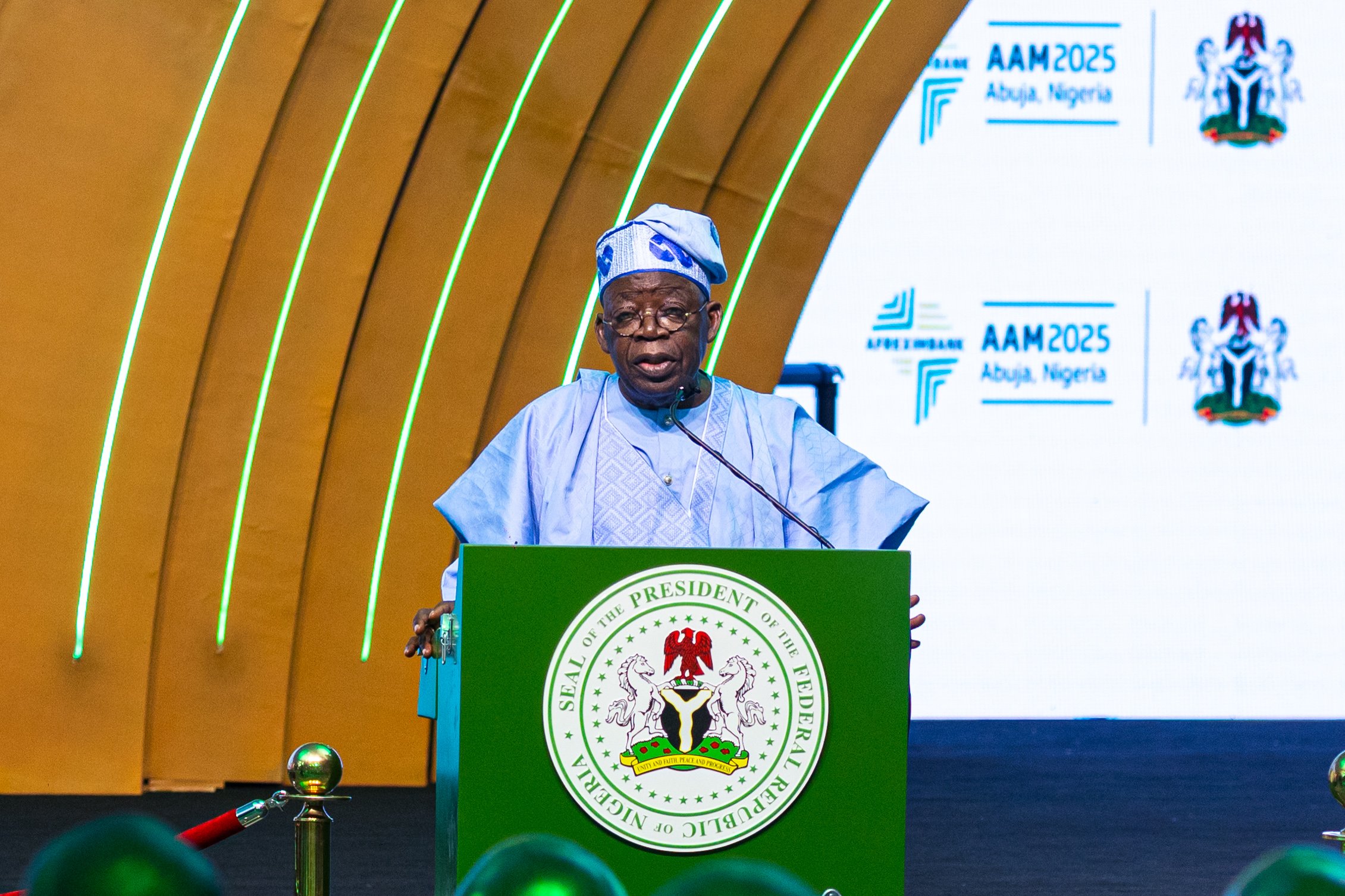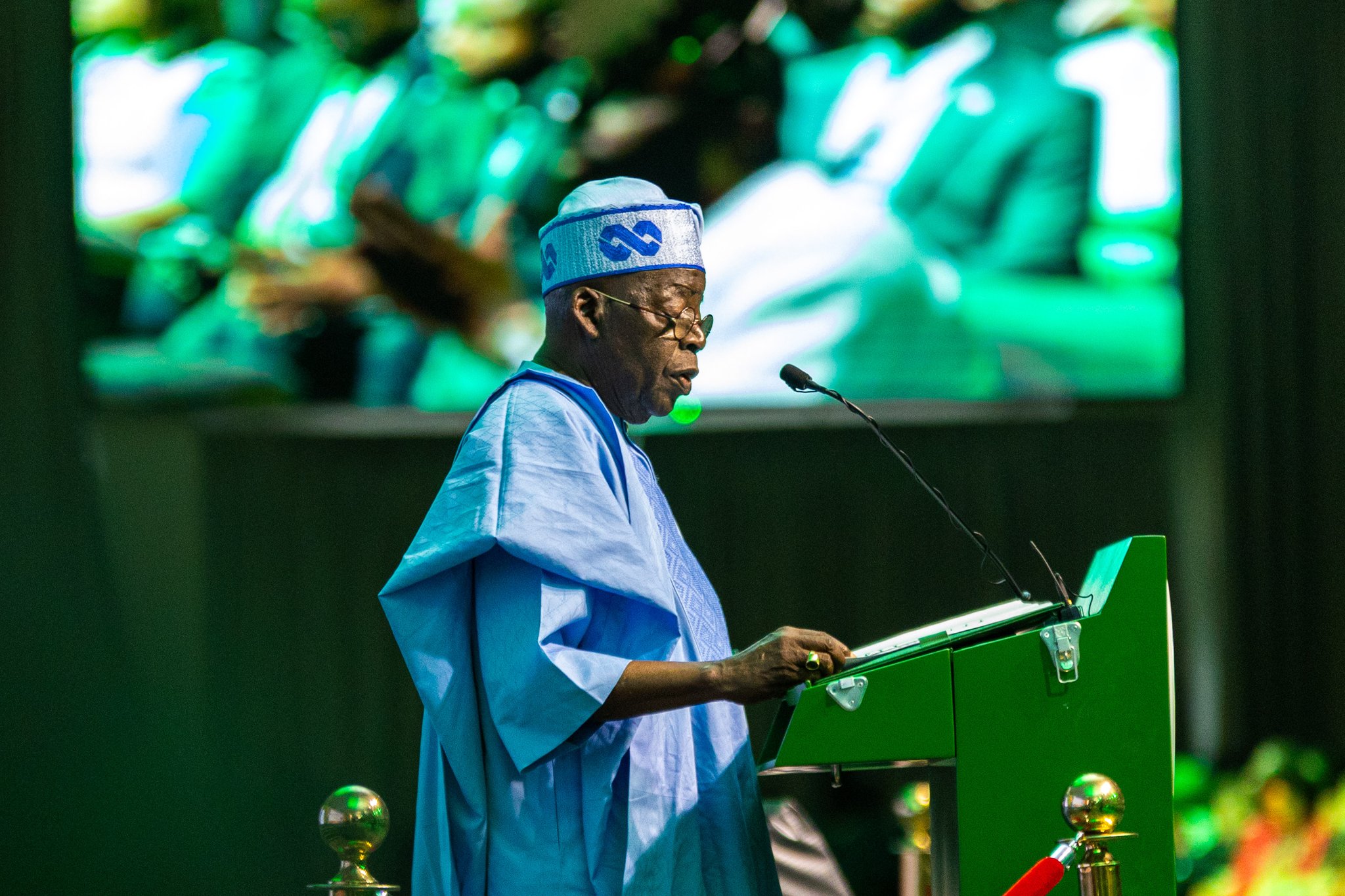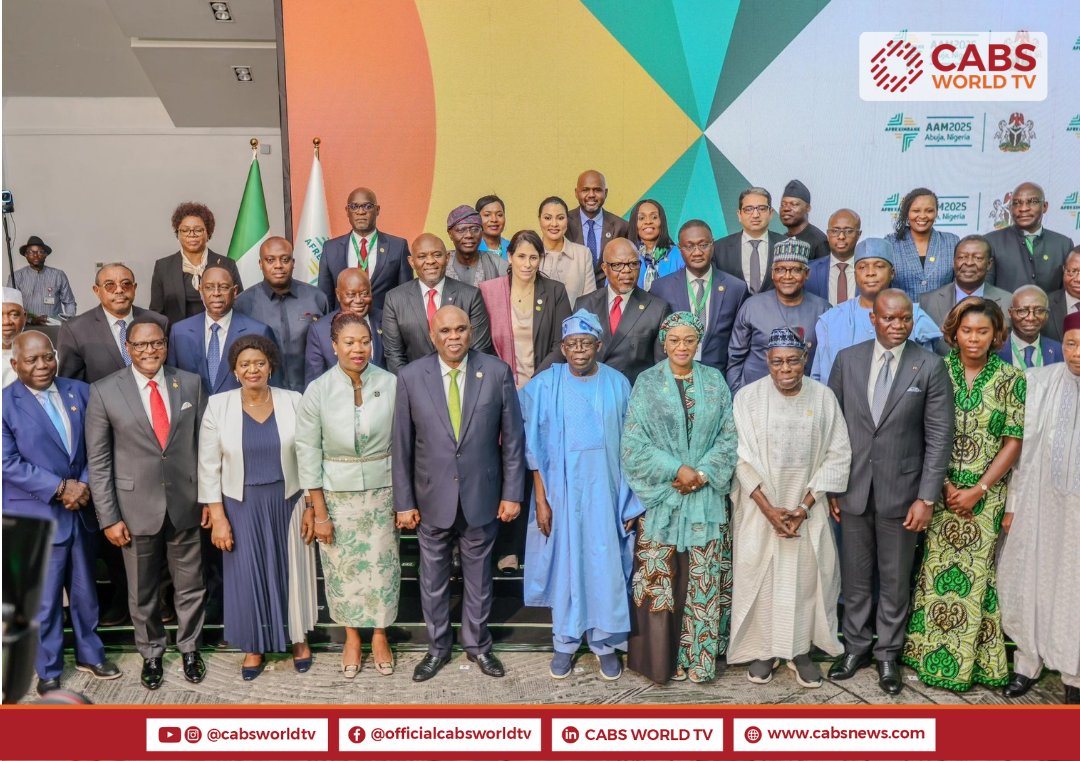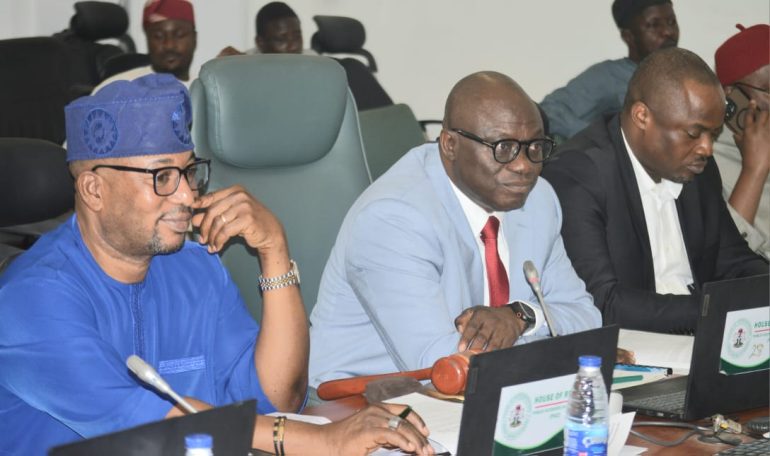Listeners:
Top listeners:
-
play_arrow
104.9FM Best rock music demo
-
play_arrow
Demo Radio Nr.1 For New Music And All The Hits!
-
play_arrow
Demo Radio Techno Top Music Radio
-
 play_arrow
play_arrow
Police Commissioner Launches Weapon and Riot Control Training for FCT Officers Democracy Radio
Honours Afreximbank’s Oramah with GCON at Annual Meeting in Abuja
By Oluwakemi Kindness

President Bola Tinubu has thrown his weight behind the Pan-African Payment and Settlement System (PAPSS), urging all African nations to adopt the platform to reduce dependence on foreign currencies and accelerate intra-African trade.
He stated this on Friday at the 32nd Annual Meetings of Afreximbank in Abuja where he honoured the outgoing President and Chairman of the Board of Directors of Afreximbank, Professor Benedict Oramah with the Grand Commander of the Order of Niger, GCON.
President Tinubu described PAPSS as “a strategic solution” to Africa’s long-standing financial bottlenecks and a pathway to unlocking the full potential of the African Continental Free Trade Area (AfCFTA).
“Nigeria’s formal approval of PAPSS is a significant step towards financial independence,” Tinubu said. “I urge all African nations to embrace PAPSS because deeper financial integration strengthens our collective resilience.”
Developed by Afreximbank, PAPSS enables instant cross-border payments in local currencies across participating African countries—bypassing the need for US dollars or euros in inter-African transactions.
Tinubu’s endorsement marks a key political push to mainstream the system across the continent.

The President tied Nigeria’s approval of PAPSS to a larger package of economic reforms aimed at macroeconomic stability, including the removal of fuel subsidies, unification of the exchange rate, and sweeping tax and financial system reforms.
According to Tinubu, these efforts are already beginning to yield results:
“Inflation is easing, the Naira is stabilizing, and investor confidence is recovering,” he noted. “But beyond numbers, our transformation depends on empowered citizens and thriving enterprises.”
Tinubu emphasized that PAPSS has the potential to reduce transaction costs for small businesses, conserve foreign reserves, and drive regional industrialisation.
He warned that as global trade becomes more fragmented, African nations must urgently build homegrown solutions and institutions that reflect their realities.
“Let us fully adopt PAPSS to reduce costs, conserve foreign reserves, and empower small-scale enterprises,” he said. “Africa must double down on its institutions and capabilities.”
The President lauded Afreximbank’s contributions to Nigeria’s development, revealing that the bank has supported the country with over $52 billion in key sectors, including energy, agriculture, healthcare, and manufacturing.
Flagship projects like the Dangote Refinery, BUA Group ventures, and the African Medical Centre of Excellence were highlighted as products of this partnership.
He also announced the siting of the Africa Energy Bank’s headquarters in Abuja, backed by $5 billion in initial capital to drive the continent’s energy transition through gas and renewables.
In a historic moment at the event, Afreximbank President Benedict Oramah was honoured with one of Nigeria’s highest national distinctions, further cementing the institution’s role as a critical pillar of Africa’s development architecture.
Tinubu concluded with a rallying call for unity and urgency:
“Let history record that African leaders chose to shape their own destiny. The world will not wait for Africa. A united and purposeful Africa must define its place in the global economy—on its own terms.”
Written by: Democracy Radio
#AAM 2025 #AFREXIM Bank #Afreximbank AGM 2025 #Bola Tinubu #DemocracyRadio #PAPSS
Similar posts
Copyright Democracy Radio -2024



